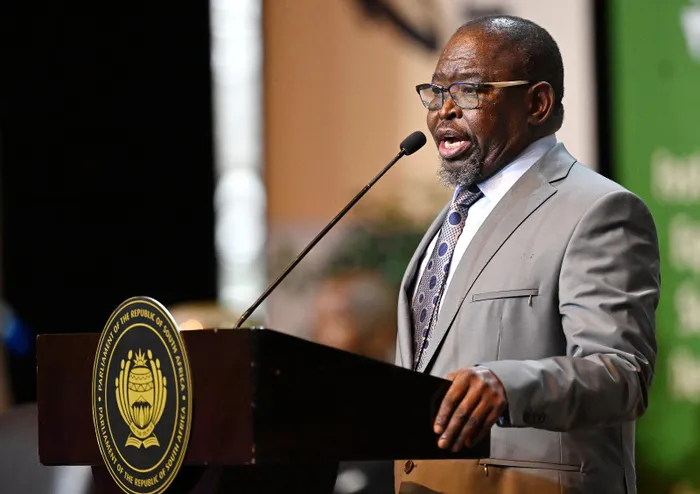
Minister of Finance, Enoch Godongwana, tabled the 2025 Budget Speech during the National Assembly plenary at the Cape Town International Convention Centre.
Image: Phando Jikelo/ Parliament of SA
THE plight of healthcare workers in public hospitals, as highlighted in a letter by a University of Cape Town medical student, was one of the reasons Finance Minister Enoch Godongwana’s budget maintains the spending trajectory presented in the main budget on 12 March.
Over the medium-term expenditure framework (MTEF) period, the provincial health sector budget will total R845 billion. An additional R20.8b will be allocated over three years to employ 800 post-community service doctors, procure essential goods and services, and reduce accruals that have hindered service delivery.
The increase would also help the sector deal with personnel budget pressures that have been growing steadily across provinces, said Godongwana.
The Department of Health’s total expenditure is expected to rise to R275.5b in 2025/26, R288.5b in 2026/27, and R301.7b in 2027/28.
This marks a gradual but consistent increase aimed at restoring both infrastructure and human capacity in the public health system.
The overall increase to the health function’s baseline is R7b or 0.85%, from R858.8b in the 2024 MTEF to R865.8b in the 2025 MTEF.
The bulk of the increase, R4.6 billion, will go to the provincial equitable share to support implementation of the 2025 public sector wage agreement.
This will ease the salary pressures that have led to understaffing, particularly in rural and high-pressure facilities.
In her letter to Godongwana Sarah Stein, a medical student at UCT, detailed the dire conditions healthcare workers face in public hospitals.
“Working in a public hospital with way too few resources punches you in the gut every day. It’s not just the trauma of seeing your patient die, it’s having no gloves in a delivery room; no alcohol swabs to clean wounds; and knowing that nurses stop at the shop on their way to work to buy their own gloves and masks because the clinic has run out.
"Where waiting times for a scan are months long, and surgery delays needlessly let disease progress to the point of being inoperable. It’s the limited beds in high care mean that doctors are regularly forced to decide whose life is worth saving because there’s only space for one,” Stein wrote.
Godongwana said addressing the persistent spending pressures to restore critical frontline services and invest in infrastructure was critical for improving access to basic services and lifting economic prospects.
On the future of National Health Insurance (NHI) funding, Godongwana allocated R858m to the NHI indirect grant in 2025/26 and R259 million in 2026/27.
Cape Times
Related Topics: